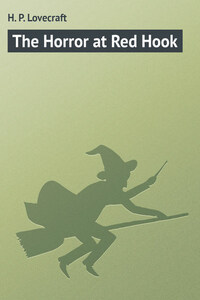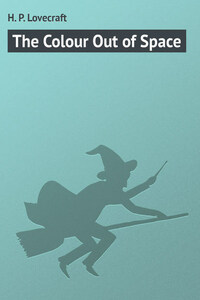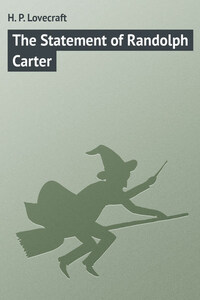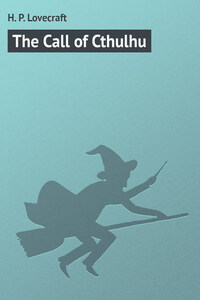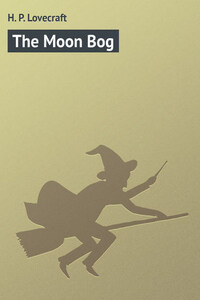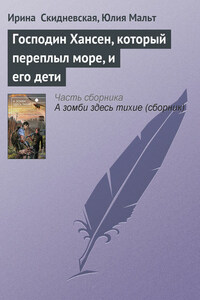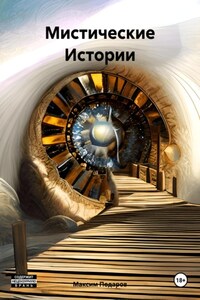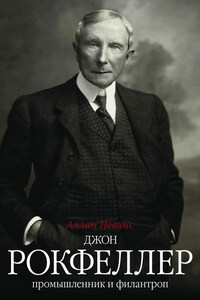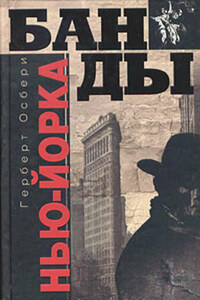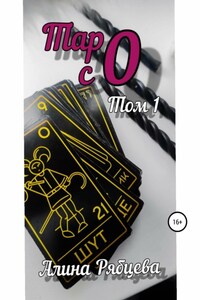“There are sacraments of evil as well as of good about us, and we live and move to my belief in an unknown world, a place where there are caves and shadows and dwellers in twilight. It is possible that man may sometimes return on the track of evolution, and it is my belief that an awful lore is not yet dead.”
– Arthur Machen.
Not many weeks ago, on a street corner in the village of Pascoag, Rhode Island, a tall, heavily built, and wholesome-looking pedestrian furnished much speculation by a singular lapse of behaviour. He had, it appears, been descending the hill by the road from Chepachet; and encountering the compact section, had turned to his left into the main thoroughfare where several modest business blocks convey a touch of the urban. At this point, without visible provocation, he committed his astonishing lapse; staring queerly for a second at the tallest of the buildings before him, and then, with a series of terrified, hysterical shrieks, breaking into a frantic run which ended in a stumble and fall at the next crossing. Picked up and dusted off by ready hands, he was found to be conscious, organically unhurt, and evidently cured of his sudden nervous attack. He muttered some shamefaced explanations involving a strain he had undergone, and with downcast glance turned back up the Chepachet road, trudging out of sight without once looking behind him. It was a strange incident to befall so large, robust, normal-featured, and capable-looking a man, and the strangeness was not lessened by the remarks of a bystander who had recognised him as the boarder of a well-known dairyman on the outskirts of Chepachet.
He was, it developed, a New York police detective named Thomas F. Malone, now on a long leave of absence under medical treatment after some disproportionately arduous work on a gruesome local case which accident had made dramatic. There had been a collapse of several old brick buildings during a raid in which he had shared, and something about the wholesale loss of life, both of prisoners and of his companions, had peculiarly appalled him. As a result, he had acquired an acute and anomalous horror of any buildings even remotely suggesting the ones which had fallen in, so that in the end mental specialists forbade him the sight of such things for an indefinite period. A police surgeon with relatives in Chepachet had put forward that quaint hamlet of wooden colonial houses as an ideal spot for the psychological convalescence; and thither the sufferer had gone, promising never to venture among the brick-lined streets of larger villages till duly advised by the Woonsocket specialist with whom he was put in touch. This walk to Pascoag for magazines had been a mistake, and the patient had paid in fright, bruises, and humiliation for his disobedience.
So much the gossips of Chepachet and Pascoag knew; and so much, also, the most learned specialists believed. But Malone had at first told the specialists much more, ceasing only when he saw that utter incredulity was his portion. Thereafter he held his peace, protesting not at all when it was generally agreed that the collapse of certain squalid brick houses in the Red Hook section of Brooklyn, and the consequent death of many brave officers, had unseated his nervous equilibrium. He had worked too hard, all said, in trying to clean up those nests of disorder and violence; certain features were shocking enough, in all conscience, and the unexpected tragedy was the last straw. This was a simple explanation which everyone could understand, and because Malone was not a simple person he perceived that he had better let it suffice. To hint to unimaginative people of a horror beyond all human conception – a horror of houses and blocks and cities leprous and cancerous with evil dragged from elder worlds – would be merely to invite a padded cell instead of a restful rustication, and Malone was a man of sense despite his mysticism. He had the Celt’s far vision of weird and hidden things, but the logician’s quick eye for the outwardly unconvincing; an amalgam which had led him far afield in the forty-two years of his life, and set him in strange places for a Dublin University man born in a Georgian villa near Phoenix Park.
And now, as he reviewed the things he had seen and felt and apprehended, Malone was content to keep unshared the secret of what could reduce a dauntless fighter to a quivering neurotic; what could make old brick slums and seas of dark, subtle faces a thing of nightmare and eldritch portent. It would not be the first time his sensations had been forced to bide uninterpreted – for was not his very act of plunging into the polyglot abyss of New York’s underworld a freak beyond sensible explanation? What could he tell the prosaic of the antique witcheries and grotesque marvels discernible to sensitive eyes amidst the poison cauldron where all the varied dregs of unwholesome ages mix their venom and perpetuate their obscene terrors? He had seen the hellish green flame of secret wonder in this blatant, evasive welter of outward greed and inward blasphemy, and had smiled gently when all the New-Yorkers he knew scoffed at his experiment in police work. They had been very witty and cynical, deriding his fantastic pursuit of unknowable mysteries and assuring him that in these days New York held nothing but cheapness and vulgarity. One of them had wagered him a heavy sum that he could not – despite many poignant things to his credit in the Dublin Review – even write a truly interesting story of New York low life; and now, looking back, he perceived that cosmic irony had justified the prophet’s words while secretly confuting their flippant meaning. The horror, as glimpsed at last, could not make a story – for like the book cited by Poe’s German authority, ‘es lässt sich nicht lesen – it does not permit itself to be read.’
To Malone the sense of latent mystery in existence was always present. In youth he had felt the hidden beauty and ecstasy of things, and had been a poet; but poverty and sorrow and exile had turned his gaze in darker directions, and he had thrilled at the imputations of evil in the world around. Daily life had for him come to be a phantasmagoria of macabre shadow-studies; now glittering and leering with concealed rottenness as in Beardsley’s best manner, now hinting terrors behind the commonest shapes and objects as in the subtler and less obvious work of Gustave Doré. He would often regard it as merciful that most persons of high intelligence jeer at the inmost mysteries; for, he argued, if superior minds were ever placed in fullest contact with the secrets preserved by ancient and lowly cults, the resultant abnormalities would soon not only wreck the world, but threaten the very integrity of the universe. All this reflection was no doubt morbid, but keen logic and a deep sense of humour ably offset it. Malone was satisfied to let his notions remain as half-spied and forbidden visions to be lightly played with; and hysteria came only when duty flung him into a hell of revelation too sudden and insidious to escape.
